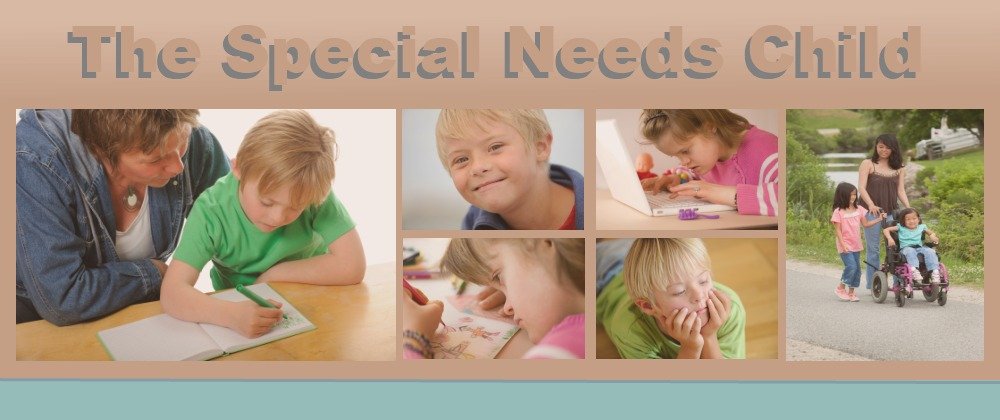|
BEHAVIOUR PROBLEMS
How to help your special needs child:
The focus here, concerning behaviour problems, is on the preventative approach which is key to maintaining positive behaviour in your child.
There are many things that can be done to assist and provide support for parents and teachers invoved with behaviour problems
and issues that are causing concerns both at home or at school for a special needs child.
Be consistent when dealing with a child who has behavioural issues, as this will often lead to more productive and positive behaviours.
Plan strategies that you can implement regularly when your child is acting out, involved in conflicts, bullying, or being verbally or physically
aggressive.
It is very important that you interact positively with your child, and never call the "bad"; it is the problematic behaviour that you are not happy with, and not the child
as a person, so make sure that you explain this when your child is acting up.
Acceptable and appropriate behaviour is developmental - it happens over time and can be moulded by parental support and guidance, previous experiences
and intervention techniques by teachers and parents.
Occasionally, despite all your efforts to correct and different behavioural techniques, some special needs children will continue to have ongoing
behavioural problems.
You cannot be all things to your child at all times, and you may need to look for help and assistance from a professional.
TAKING THE FIRST STEPS...
- If you see your child going something great, praise him! Promote your Childs self-esteem and confidence every chance you get.
- When your child takes responsibility well, them know, and keep on providing more opportunities for your child to become responsible.
- Be objective, yet understanding - never loose your patience even though you may be tempted to do so.
- Use your best judgement of the situation, stay objective and try to understand your childs point of view.
- Even though you may be frustrated - be patient!
THE NEXT STEPS...

- Make your expectations very clear, with a minimal number of rules and routines that have to be followed.
Think big, start small
- Involve your child when you are setting the guidelines for new rules and
routines,
ask for their help. Make sure they repeat the new schedule,
as this will help with the transition and getting them to remember.
- Emphasize your childs strengths and never their weaknesses.
- When the opportunity presents itself help your child to successful in what they set out to do.
- Repetion, repetion, Repetion - provide opportunities for your child to reiterate what is expected of him. For example: "What happens before and during
bath time?"
- Avoid power struggles - Nobody Wins!
- Take time to discuss what is appropriate and inappropriate behaviour. This should happen if there was an issue, but only after everyone has calmed
down and had a time out.
- Routines - Children with behaviour problems benefit enormously from clearly established routines and schedules - This cannot be stressed enough!
- Teach your child the skills necessary for appropriate behaviour from a very early age, and this will reduce the chance of major behaviour problems as they get older!
THE FINAL STEPS...
So far we have discussed some strategies that you can use to start dealing with and changing your childs behaviour problems, now it's time for the
implementation stage.
You are now ready for the five step plan:
- Pinpoint the behaviour you want to change and be very specific.
- Gather your information - When does the unacceptable behaviour occur? How often and under which circumstances does it happen? What precedes the behaviour?
Does it happen when your child is alone, supervised, with others or at a specific time? What is your child's opinion of his behaviour?
- Now you need to take the time to interpret and analyse the information that you have gathered.
- Now is the time to plan for the changes and set some goals - together with your child. What are the short and the long term goals? Who is involved
and what will happen?
The plan for change should be a collective effort between you and your child. Be specific about needs to be done and what is expected. In your plan for change,
a reward system should be in place, and you can use a rewards chart. It is often easier for a child to visualise what needs to be done and what the end
goal is, and far along the road they are.
- Evaluate how your plan is going, and if it is not working, discuss this with your child and make the necessary changes.
 Once again, if after several consistent tries you find that your plan is not working, and there have been no noticeable or long term changes
in the unacceptable behaviour, you may need to get your child referred to a specialist for some professional help.
Once again, if after several consistent tries you find that your plan is not working, and there have been no noticeable or long term changes
in the unacceptable behaviour, you may need to get your child referred to a specialist for some professional help.
Dealing with the behaviour problems now will pay off in the long run!
Resources
For more information on parenting a Special needs child, visit Kathys site
Finding God in Autism.
This is a great website and book that gives Biblical resources to help you as a parent. From mild to aggressive and challenging behaviour you can have peace, hope and strength. Your toughest questions will be answered on Kathys site and in her book.
Related Articles
Teaching rules and routines.
The best strategies for establishing rules and routines for acceptable behaviour from your special needs child, are those strategies
that are pro-active and preventative...
Improving behaviour in your child.
Try using these steps to improving behaviour in your special needs child, thereby making child more manageable and happier in themselves...
Return from Behaviour problems back to Home page
|
|

Sign up here
to receive
"The Cool Calm Special Needs Mom"
eBook
**FREE**
-STAY UPDATED-
With
"The Special Needs Child eZine"
Our Monthly Newsletter!
|
|
|

|
|

|




 Once again, if after several consistent tries you find that your plan is not working, and there have been no noticeable or long term changes
in the unacceptable behaviour, you may need to get your child referred to a specialist for some professional help.
Once again, if after several consistent tries you find that your plan is not working, and there have been no noticeable or long term changes
in the unacceptable behaviour, you may need to get your child referred to a specialist for some professional help.





